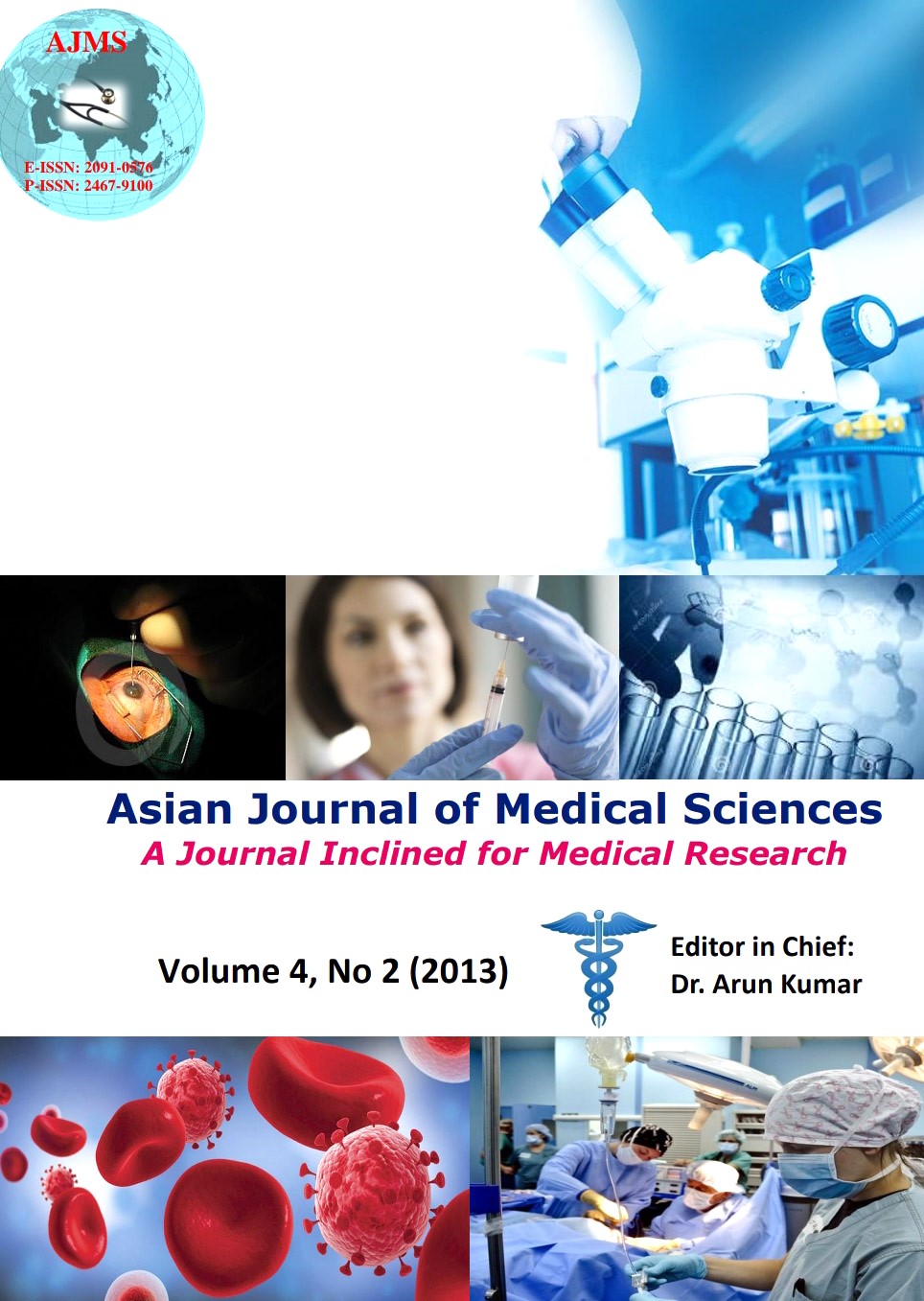Serum total adenosine deaminase activity in Nepalese patients with Rheumatoid Arthritis
Keywords:
Rheumatoid arthritis, Adenosine deaminase, C-reactive protein, Rheumatoid factor, UCMSTH, NepalAbstract
Objective: Several studies indicate that serum adenosine deaminase (ADA) activity could be a potential marker for the diagnosis of patients with rheumatoid arthritis (RA). However, there has been no such study that could independently verify this finding in Nepali population. The present study therefore aims to measure the total ADA activity in the sera of Nepalese RA patients and verify its diagnostic potential.
Materials and Methods: A total of 69 RA patients who visited Universal College of Medical Sciences Teaching Hospital (UCMSTH), Bhairahawa, Nepal for their medical treatment were enrolled for this study. An equal number of age and sex-matched healthy controls were also included in the study. Blood samples were collected from each study subjects and analyzed for serum total ADA, Creactive protein (CRP) and rheumatoid factor (RF).
Results: Serum total ADA activity was found to be significantly (p<0.0001) higher (30.0 }10.1 U/L) in all RA patients compared to healthy controls (13.5 } 3.6 U/L). However, no significant difference (p>0.05) in the ADA activity was found between the smokers and non-smoker RA patients. Out of total 69 RA patients, only 16 (23.1%) were positive for CRP and 11 (15.9%) were positive for RF.
Conclusion: Measurement of serum total ADA activity could be a reliable marker for the diagnosis of RA in Nepali population with relevant clinical scenarios when there is absence of CRP and RF in the serum.
DOI: http://dx.doi.org/10.3126/ajms.v4i2.6208
Asian Journal of Medical Sciences 4(2013) 30-35
Downloads
Downloads
Published
How to Cite
Issue
Section
License
Authors who publish with this journal agree to the following terms:
- The journal holds copyright and publishes the work under a Creative Commons CC-BY-NC license that permits use, distribution and reprduction in any medium, provided the original work is properly cited and is not used for commercial purposes. The journal should be recognised as the original publisher of this work.
- Authors are able to enter into separate, additional contractual arrangements for the non-exclusive distribution of the journal's published version of the work (e.g., post it to an institutional repository or publish it in a book), with an acknowledgement of its initial publication in this journal.
- Authors are permitted and encouraged to post their work online (e.g., in institutional repositories or on their website) prior to and during the submission process, as it can lead to productive exchanges, as well as earlier and greater citation of published work (See The Effect of Open Access).




